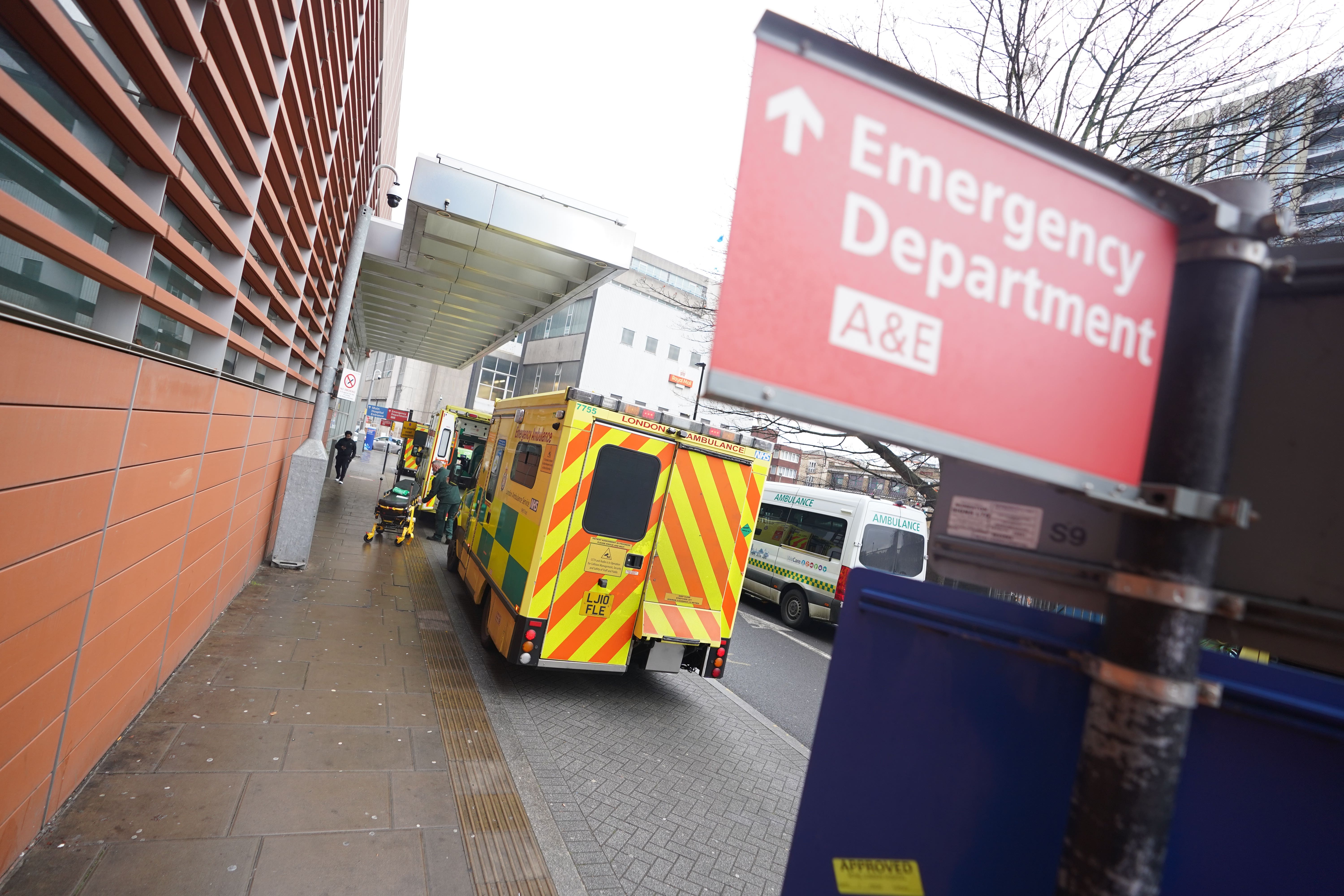Ambulance trusts reduce alert level but warn NHS remains under extreme pressure
Many trusts said they were already under huge pressure before strikes by ambulance workers began on Wednesday.

The public have been warned that the health service remains under extreme pressure in the run-up to Christmas, despite the highest level of alerts being stood down in some places.
The majority of ambulance trusts in England were in so-called critical incident status this week, meaning they could not provide usual critical services and patients may face harm.
Many trusts said they were already under huge pressure before strikes by ambulance workers began on Wednesday.
South Central Ambulance Service NHS Foundation Trust remained in critical incident status on Thursday.
A spokesperson said the critical incident covering the whole NHS in Hampshire remains in place “amid significant, ongoing pressure”.
London Ambulance Service stood down its business continuity incident – which is similar to critical incident status – but Londoners were still being advised to only call 999 in life-threatening emergencies.
East of England Ambulance Service said it stood down its incident status which had been in place to “manage the extreme pressure we were under after a high volume of calls and delays in handing over patients at hospitals”.
In a statement on its website, it added: “The NHS remains under extreme pressure – so please only call 999 for life-threatening conditions or serious injury.”
North West Ambulance Service said that while strike action had finished, its 999 and 111 services “are still challenged”.
We cannot go on coping with industrial action in the NHS because each time it happens, there are direct consequences, but also all sorts of knock-on effects
A spokesperson confirmed on Thursday that the critical incident had been stood down.
In a tweet, the service urged people to “continue to help us by only calling 999 for life-threatening injuries/illnesses” and to contact 111 online or their GP or local pharmacy for help with non-urgent health concerns.
Some patients will still be advised to make their own way to hospital when it is safe to do so amid continued “unprecedented pressures”, the North East Ambulance Service has said.
Wednesday was “incredibly challenging”, the service said, adding it “followed a peak in pressures earlier in the week when we declared a critical incident”.
Chief operating officer Stephen Segasby said: “We remain at our highest level of alert status because of the continuing unprecedented pressures impacting our ability to respond to patients, although we are no longer declaring a critical incident.
“However, many of the actions we put in place at the start of the week will remain in place to focus our resources on those who are most in need. This includes advising some patients to make their own way to hospital when it is safe to do so.”
He said while they are no longer declaring a critical incident, “we remain at our highest level of alert status because of the continuing unprecedented pressures impacting our ability to respond to patients”.
Its patient transport service will continue to operate for essential journeys only, including for people who need dialysis, chemotherapy, oncology and heart care.
Matthew Taylor, chief executive of the NHS Confederation, said the health service “coped as well as could be expected” during Wednesday’s strike but warned that it could not “go on coping” with a winter of industrial action.
Speaking on BBC Radio 4’s Today programme, he said: “We coped as best we could yesterday, but it’s incredibly important to recognise that we cannot go on coping with industrial action in the NHS because each time it happens, there are direct consequences, but also all sorts of knock-on effects.
“We will repeat the call, which is to trade unions and to the Government to step away from rhetoric and step towards negotiation. We can’t drift into more and more industrial action.”
Bookmark popover
Removed from bookmarks